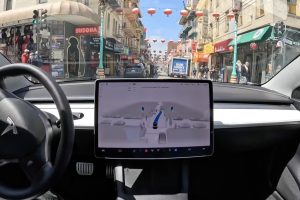- 🗳️ President Joe Biden has officially withdrawn from the 2024 U.S. election.
- 🤝 Biden endorsed Vice President Kamala Harris amidst criticism of his age and mental acuity.
- 🚗 Elon Musk officially endorsed former President Donald Trump last weekend.
- 🏛️ Trump selected Ohio Senator JD Vance as his running mate.
- ⚡ Republicans aim to overturn Biden’s federal electric vehicle (EV) programs if Trump is elected.
- 💰 There are concerns about Vance’s anti-EV stance and proposals for subsidies on gas vehicles.
- 🛠️ Vance praised Musk for building Tesla, likening him to an older generation of American entrepreneurs.
- ❌ Musk denied reports of contributing $45 million per month to a PAC supporting Trump.
In an unexpected turn of events, President Joe Biden has officially withdrawn from the 2024 U.S. election. This historic decision, announced via an open letter, has already sent ripples through the political landscape, opening the door to new potentials and realities for both parties. Let’s dive into the various facets of Biden’s withdrawal, from the immediate endorsements to the broader implications on federal policies, particularly those concerning electric vehicles (EVs).
Biden Withdraws: The Triggering Event
President Joe Biden announced his withdrawal from the highly-anticipated 2024 U.S. election, citing mounting concerns over his age and mental acuity. In a comprehensive letter released on July 21, 2024, Biden revealed his decision to step down and endorsed Vice President Kamala Harris as his preferred successor. This withdrawal was not only surprising but has also ignited intensive discussions and speculations about the forthcoming election’s dynamics.
Immediate Political Reactions
Kamala Harris: The New Democratic Hope?
Kamala Harris, Biden’s trusted Vice President, was front and center in Biden’s letter of endorsement. While Harris is yet to officially become the Democratic nominee, Biden’s endorsement carries considerable weight and is likely to streamline her path. The Democratic Party, now tasked with mobilizing its base, will need to focus on Harris’s strengths and policy approaches to stave off any potential Republican surge.
Elon Musk’s Endorsement: A Game Changer?
Adding another layer of intrigue, Elon Musk has officially endorsed former President Donald Trump. Given Musk’s significant influence both in tech and public opinion, this endorsement could pivot key voter bases towards Trump. With Musk’s backing, Trump’s campaign gains an edge in promoting technological economic policies, ostensibly aligned with an “older generation of American entrepreneur” ethos.
Republican Strategies: Trump and Vance’s Policy Directions
Trump-Vance Ticket: What to Expect?
Donald Trump wasted no time in selecting his running mate, settling on Ohio Senator JD Vance. This pairing underscores a unified vision fraught with changes, particularly aimed at rolling back Biden Administration policies. With Vance well-known for his anti-EV stance and proposals for gas vehicle subsidies, this ticket poses significant questions for the future of federal EV programs.
EV Policies and Federal Mandates
The Republican ticket, if successful, aims to dismantle many of Biden’s aggressive EV adoption measures. Notable proposals include ending the federal mandate requiring 50% of vehicle sales to be fully electric by 2030 and eliminating the $7,500 EV subsidy. By contrast, they propose equivalently valuated subsidies for gas vehicles. This policy shift could radically alter the trajectory of the U.S. automotive industry, potentially stymying the momentum of EV adoption in favor of traditional fossil fuels.
Key Concerns and Public Opinions
Economic Implications of EV Policies
The competition between electric and gas-powered vehicles isn’t just a technical debate; it holds substantial economic implications. Repealing EV subsidies and mandates will not only affect consumer choices but could also ripple through various industries, from manufacturing to energy. Companies involved in the EV supply chain might face reduced demand, potentially leading to workforce reductions and economic contractions in specific sectors.
Public Sentiment and Criticism
Both Biden’s withdrawal and the resulting political maneuvers have spurred a significant wave of public sentiment and criticism. Amidst these developments, Elon Musk’s denial of funding a PAC at the alleged rate of $45 million per month reinforces the narrative of a fragmented political climate where even perceived associations can instigate fervent speculation.
Analyzing the Political Landscape: What Lies Ahead?
For the Democrats
Kamala Harris’s candidacy will need robust strategies to counter Republican narratives while addressing internal party disagreements. Mobilizing younger voters, emphasizing social justice, and maintaining a coherent policy vision will be critical.
For the Republicans
The Trump-Vance duo will need to tackle both policy and public relations hurdles, especially those arising from EV stance criticisms and general governance concerns. With Elon Musk’s entrepreneurial image invoked, focusing on economic growth through traditional and technological sectors might bolster their appeal.
In conclusion, President Joe Biden’s withdrawal from the 2024 election marks a seismic shift in the political arena, presenting both challenges and opportunities for the current and aspiring leaders. As the campaigns heat up, the strategies and policies formed around key issues like federal EV programs will undoubtedly shape the direction of the United States for years to come.
This unfolding story reminds us that in politics, change is the only constant, and adaptation is crucial for navigating the intricacies of leadership and governance.





